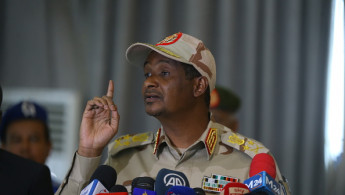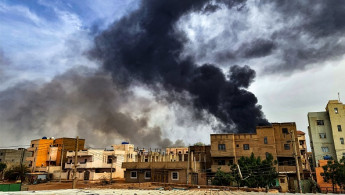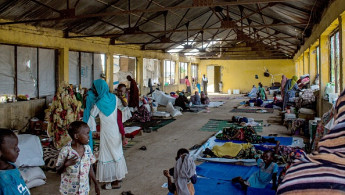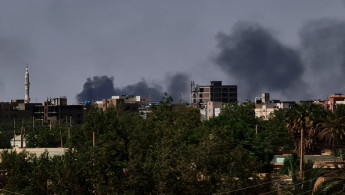Sudan war enters 100th day with catastrophic toll on civilians and displacement
The war that erupted on 15 April between Sudan's army and the paramilitary Rapid Support Forces (RSF) has entered its 100th day on Sunday - a period which has seen much havoc in Khartoum, escalated ethnic violence in Darfur and the displacement of over three million people.
The war, which pits army chief Abdel Fattah al-Burhan against his former deputy Mohamed Hamdan Daglo, commander of the paramilitary RSF, saw aid agencies report an increasing number of civilian casualties.
The Armed Conflict Location and Event Data Project (Acled) said that out of 320 "political-violence events" in Sudan, almost 80 targeted civilians, resulting in over 220 deaths.
The overall death toll may reach nearly 3,000, with the actual figure likely to be much higher due to limited reporting in remote areas.
The targeting of civilians has also led to a mass exodus to neighbouring countries and internal displacement, with the UN estimating 200,000 people displaced in one week alone, based on data from the International Organization for Migration (IOM).
The UNHCR reports that nearly 800,000 people have fled to neighbouring nations.
The fertile land between the White Nile and the Blue Nile rivers now hosts several hundred thousand of the estimated 3.3 million people the war has displaced.
International donors have pledged almost $1.5 billion in aid to address the crisis, but humanitarian agencies asserted that double that amount may be needed to stabilise the situation.
UN's Secretary-General Antonio Guterres said that some $3 billion was needed to assist people in Sudan and those who have fled to neighbouring countries.
"The scale and speed of Sudan’s descent into death and destruction is unprecedented," Guterres said during the donor conference in June.
"Without strong international support, Sudan could quickly become a locus of lawlessness, radiating insecurity across the region."
The situation has led to a focus on providing aid to Sudan's neighbours, many of whom are recovering from prolonged periods of war and poverty.
The UN World Food Programme suspended operations in the country after three of its staff were killed in the early fighting. The impact on aid operations continues, with recent reports of armed groups attacking health workers in Khartoum.
In addition to the conflict between Sudan's army and RSF forces, ethnic conflicts have reignited, resulting in civilian deaths.
West Darfur, a region already scarred by conflict in the early 2000s, has seen some of the worst violence since fighting began in mid-April.
With the war showing no signs of ending, regional efforts to mediate peace talks have intensified, but challenges remain in coordinating diplomatic efforts among various parties.
Analysts say both warring sides would like to see the battlefield expand.
"The RSF has held the upper hand in Khartoum since the early days of the war, but that advantage is only growing more apparent," the International Crisis Group (ICG) think tank said.
The army on 15 July launched a major offensive in North Khartoum, flattening entire suburban neighbourhoods with air raids, "but it failed spectacularly", the ICG said.
The RSF, meanwhile, are trying to seize the main Darfur-Khartoum road to ensure a constant supply of fighters and weapons.
Both Burhan and Daglo have representatives in Saudi Arabia, where truce talks have in theory been taking place.
But on Friday, the government in Khartoum denied "any information concerning a near truce".








 Follow the Middle East's top stories in English at The New Arab on Google News
Follow the Middle East's top stories in English at The New Arab on Google News


